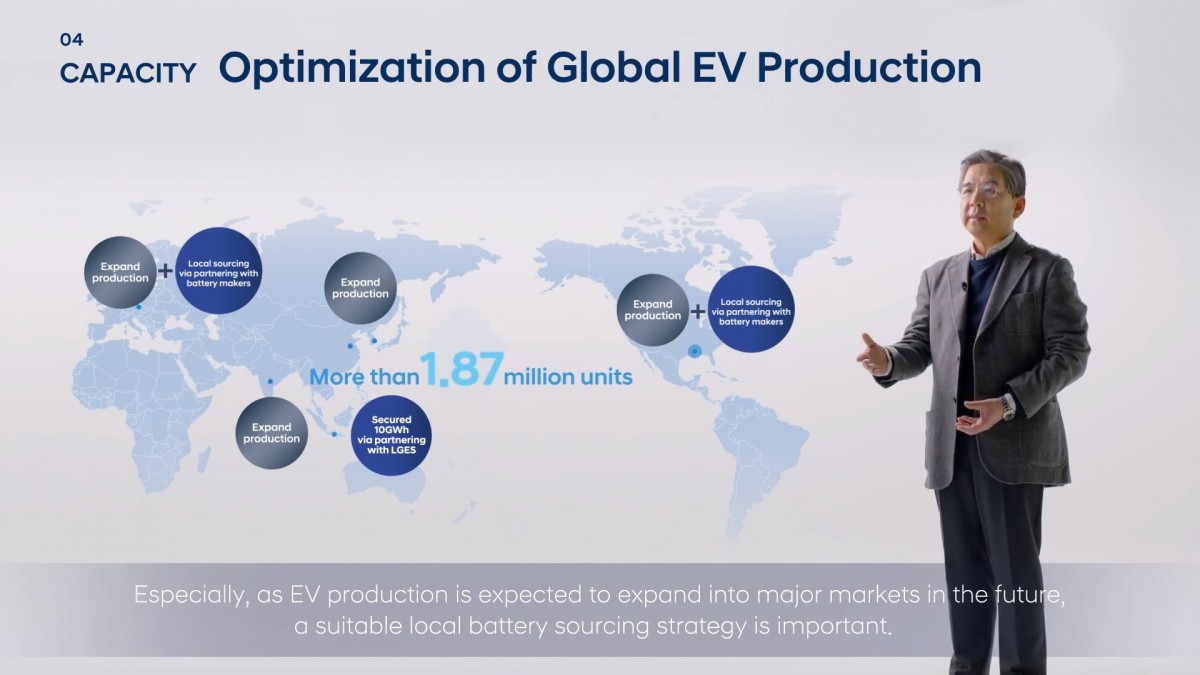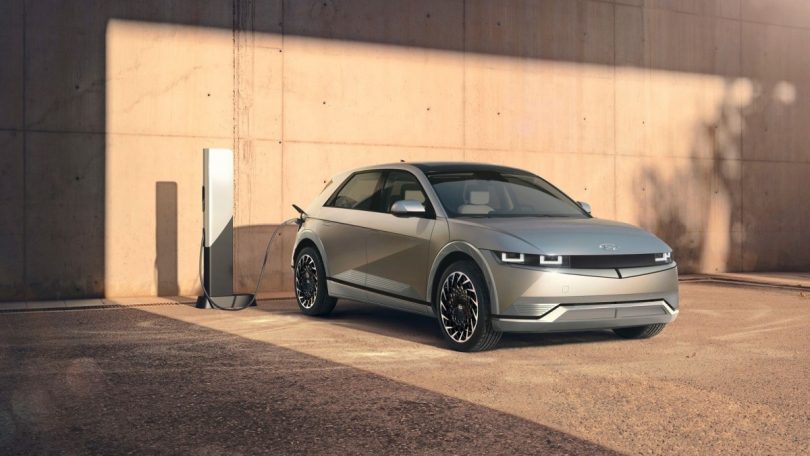Korean automotive giant Hyundai unveiled its plans of an electrification roadmap and strategies during the 2022 CEO Investor Day forum. Additionally, Hyundai also revealed its sales and financial performance targets for 2030 to its shareholders, investors, and various stakeholders. Hyundai’s roadmap plans for its battery electric vehicles (BEV) involves strengthening its line-ups, optimizing manufacturing capacity, and securing hardware/software competitiveness. The automaker aims to boost its annual global BEV sales to 1.87 million units by the year 2030.
This also includes the securement of a 7% global market share and investing KRW 95.5 trillion for future businesses. Additionally, Hyundai’s mid-to-long-term financial goals include investing KRW 19.4 trillion for electrification and KRW 12 trillion for software capabilities. By 2030, Hyundai also aims to achieve an operating profit margin of 10% in the EV business by enhancing competitiveness. This also includes enhancing the hardware and software capabilities of its vehicles with an expanded line-up for the future.
Strengthening its BEV Line-ups
Prior to the 1.87 million unit target set for 2030, Hyundai aimed to produce 5,60,000 units by 2025. The automaker aims to introduce 17 BEV models, including 11 marque models and 6 from its luxury brand Genesis. By 2030, Hyundai aims to expand its BEV spectrum by introducing 3 sedans, 6 SUVs, 1 LCV, and a new-type model.
This year also marks the beginning of the sales for Hyundai’s IONIQ 6, followed by the IONIQ 7 in 2024. Currently, Hyundai’s luxury brand, Genesis’s BEV line-up, consists of 2 passenger cars and 4 SUVs, including the upcoming electrified GV70. The automaker also announced that from 2025 onwards, all newly launched models from Genesis would feature electrification in some form.
Optimising EV manufacturing capacity
Hyundai announced that it aims to establish a high-efficiency manufacturing process for BEV production, accelerating its transition into electrification. To achieve this, the Hyundai Motor Global Innovation Centre in Singapore (HMGICS) is the cornerstone for mobility value chain innovation. This centre will reportedly build a human-centred manufacturing innovation platform that will bring dramatic innovation towards production efficiency. The platform will introduce a flexible production system, advanced level automation and digital twin technology that will soon witness expansion.
Beyond its existing BEV production facilities centred in Korea and the Czech Republic, Hyundai aims to expand its BEV manufacturing bases. It recently began these operations via an Indonesian plant that will focus on BEV production and expansion of production volume. Hyundai is actively trying to increase the local procurement rate of batteries via various strategic alliances with battery companies. This will enable them to secure a sufficient battery supply by likely obtaining more than 50% of next-gen batteries by 2025.
Also Read: Tata Motors launches ‘Anubhav’ mobile showrooms



